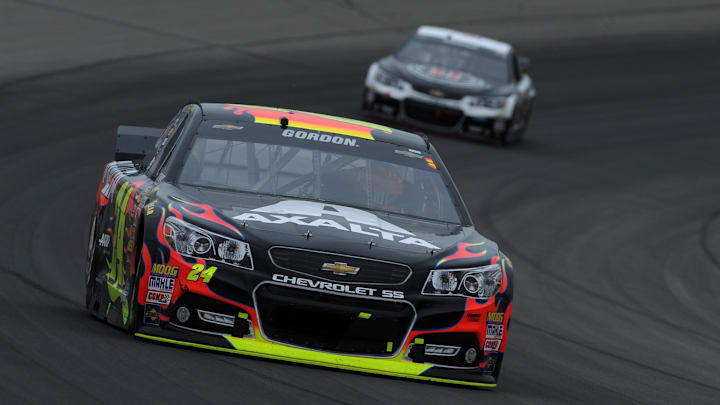NASCAR drastically altered the trajectory of the sport in 2004 when they instituted a playoff format, and they changed it again in 2014 by turning the playoffs into a knockout-style, round-by-round postseason.
For years, NASCAR fans have complained about the playoffs and the fact that they effectively reduce the meaning of performing at a high level over the course of a 36-race season.
We saw it in 2015, when Kyle Busch missed 11 races and won the championship. We saw it in 2024, when Joey Logano won the championship after finishing the regular season 15th in points and only getting into the postseason because of a five-overtime win over the driver who was last in the standings.
And yes, somehow, some way, we even saw it in 2025, despite the fact that champion Kyle Larson actually did manage to lead the series in total points scored over the course of all 36 races.
But what if the playoffs never existed to begin with?
First and foremost, drivers and teams would obviously strategize differently. Whether it comes down to accepting a fourth place finish rather than risking it all for a win, caring more (or less) about stage results, or whatever it may be, the approach would be different in some way, shape, or form each weekend.
However, as we've done before, let's have a look at who actually scored the most points (using whatever points format happened to be used at the time, which is ironically another variable to consider about how things would be approached differently) each season from 2004 to 2025, and just how different the history of the sport would look if NASCAR never added playoffs.
NASCAR Cup Series champions without playoffs
Year | Points leader | Actual champion |
|---|---|---|
2004 | Jeff Gordon | Kurt Busch |
2005 | Tony Stewart | Tony Stewart |
2006 | Jimmie Johnson | Jimmie Johnson |
2007 | Jeff Gordon | Jimmie Johnson |
2008 | Carl Edwards | Jimmie Johnson |
2009 | Jimmie Johnson | Jimmie Johnson |
2010 | Kevin Harvick | Jimmie Johnson |
2011 | Carl Edwards | Tony Stewart |
2012 | Brad Keselowski | Brad Keselowski |
2013 | Jimmie Johnson | Jimmie Johnson |
2014 | Jeff Gordon | Kevin Harvick |
2015 | Kevin Harvick | Kyle Busch |
2016 | Kevin Harvick | Jimmie Johnson |
2017 | Martin Truex Jr. | Martin Truex Jr. |
2018 | Kyle Busch | Joey Logano |
2019 | Kyle Busch | Kyle Busch |
2020 | Kevin Harvick | Chase Elliott |
2021 | Kyle Larson | Kyle Larson |
2022 | Chase Elliott | Joey Logano |
2023 | William Byron | Ryan Blaney |
2024 | Kyle Larson | Joey Logano |
2025 | Kyle Larson | Kyle Larson |
On only nine of 22 occasions since 2004 has the champion been the same as it would have been without a playoff format.
Let's have a look at some of the key differences.
Four-time champion Jeff Gordon would be a seven-time champion rather than Jimmie Johnson, who would only be a three-time champion. 2014 champion Kevin Harvick would be a four-time champion, and ironically none of those titles would have come in 2014.
Tony Stewart and Carl Edwards would both be two-time champions, rather than Stewart having three and Edwards having none. William Byron, like Edwards, would be a champion but isn't.
Two-time champion Kyle Larson would be a three-time champion, while three-time champion Joey Logano, on the other hand, would still have none. Champions Kurt Busch and Ryan Blaney would also still have none.
Two-time champion Kyle Busch would still be a two-time champion, though he would have won his first title in a different year. Chase Elliott would still be a champion, though he would have won his title in a different year.
Brad Keselowski and Martin Truex Jr. are the only champions unaffected, as they only ever led the series points during the seasons they won their lone championships.
Denny Hamlin, whom many feel was robbed this past Sunday at Phoenix Raceway, would still be the winningest non-champion of all-time either way.
